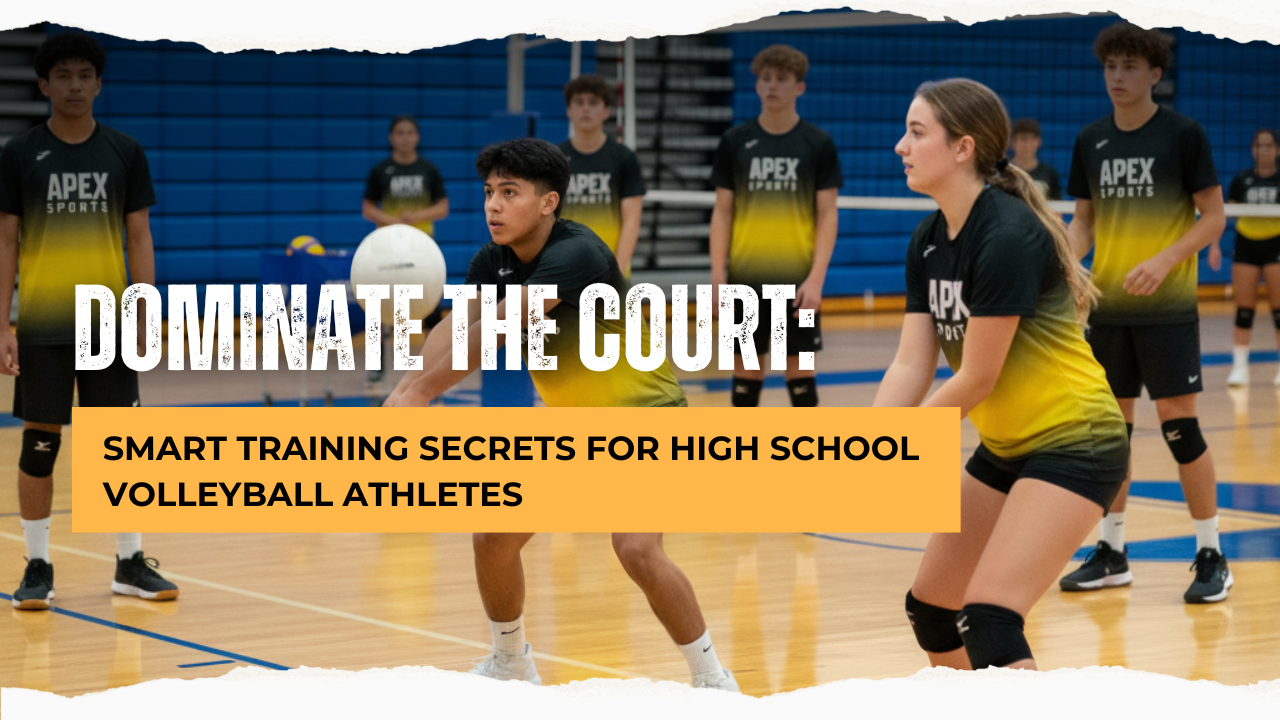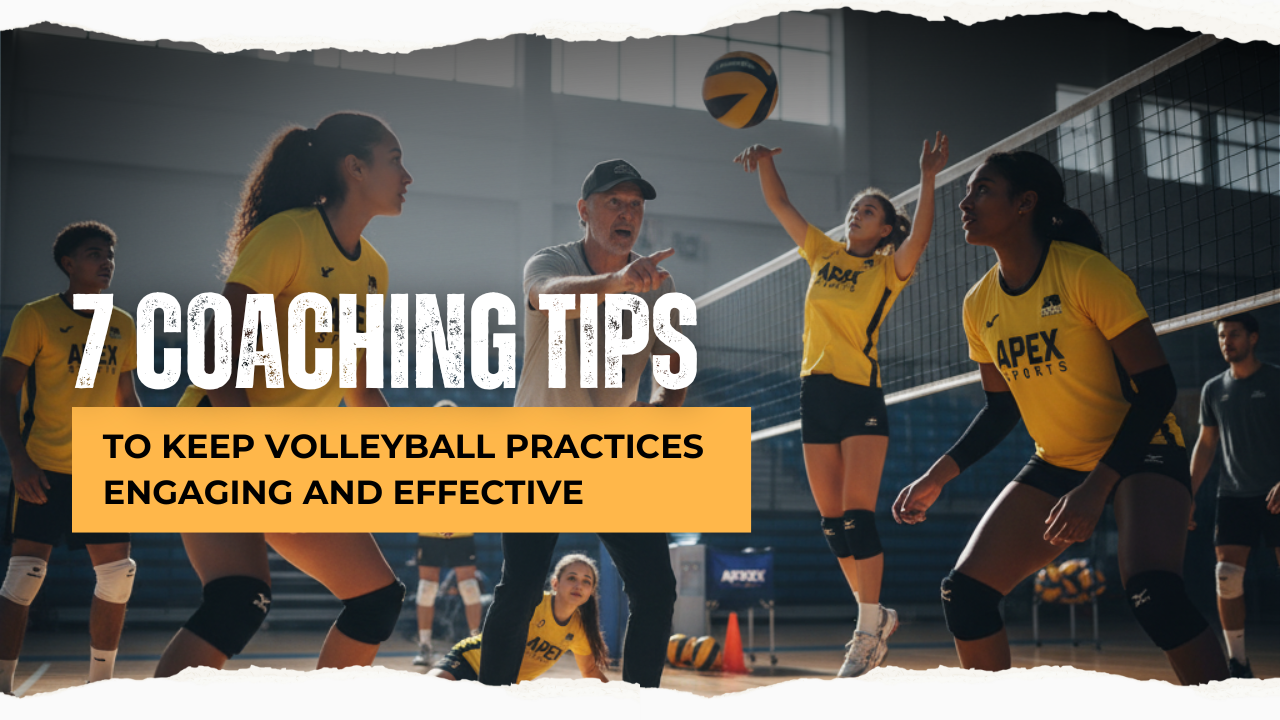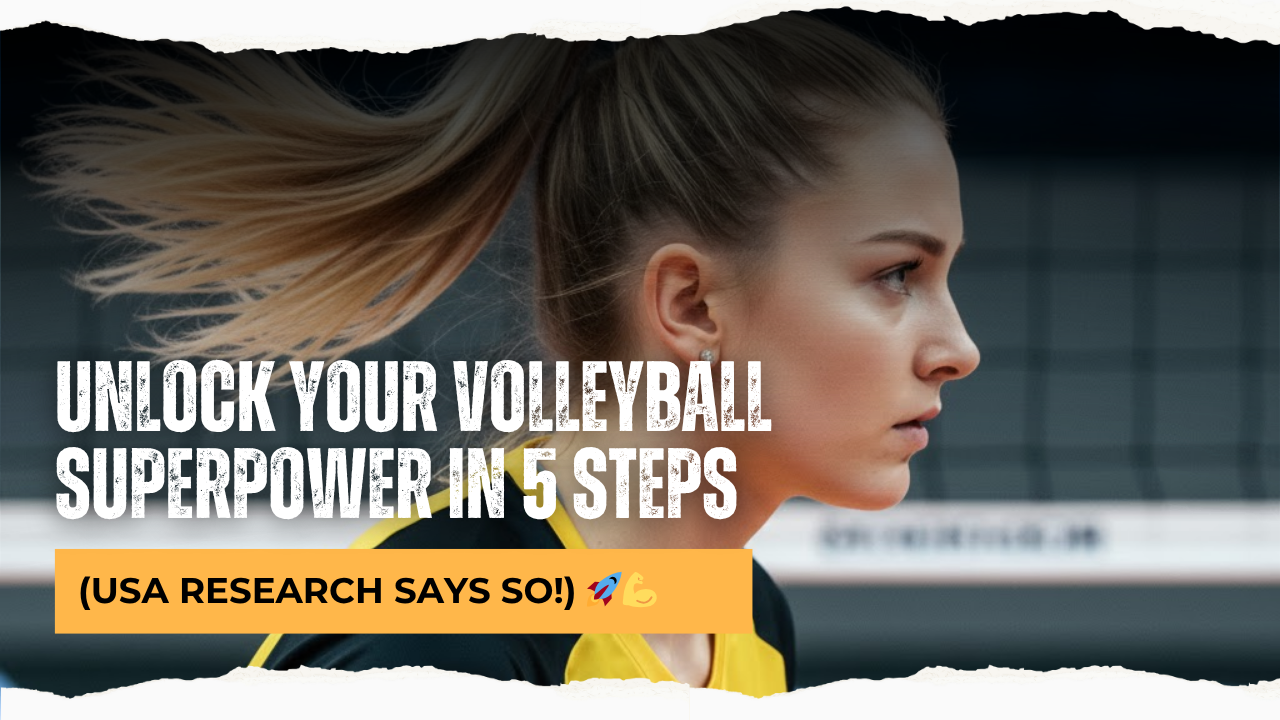Smart Training Secrets for High School Volleyball Athletes 🏐
Volleyball is more than just jumping and hitting; it’s a high-speed game of strength, agility, and focus. To be a top athlete, you need to train smarter, not just harder. We've pulled key strategies from sports science research, just like the pros use, to help you crush your next season.
1. Jump Higher, Move Quicker: The Physical Edge
In volleyball, success is all about explosive power and fast feet. Studies consistently show that how high you jump and how fast you change direction are huge factors in winning.
- Train Like a Rocket 🚀:
You need to get off the floor fast. Research shows that specific jump training, called plyometrics (think rapid, powerful jumps), is one of the best ways to boost your vertical jump. Make sure your training includes exercises that teach you to absorb force when you land and explode back up.
- Be a Court Blur (Agility):
The game is all stop-and-go. You sprint, jump, land, and instantly change direction. Agility training that focuses on quick acceleration, deceleration, and sharp cuts is essential. Being agile helps you get to a stray ball or close a block faster than anyone else.
- Smart Strength for Explosiveness:
When you lift weights, focus on movements that make you powerful, not just big. Lower-body strength is key for jumping, so your workouts should include exercises that build power in your legs.
2. Stay in the Game: Injury Prevention is Key
The bad news: Ankle, knee, and shoulder injuries are super common in volleyball.
The good news: Most can be avoided with targeted work!
- Protect Your Landing Gear:
The Ankle is the most common injury site for volleyball players, usually from awkward landings or stepping on someone's foot under the net.
- Ankle and Knee Work:
Focus on stability exercises for your ankles and strengthen the muscles around your hips and knees. This helps your body land correctly and prevents your knees from collapsing inward (a big cause of knee injuries).
- "Jumper's Knee" Prevention:
Patellar tendinitis, or "Jumper's Knee," is an overuse injury from repeated jumping. Monitoring your total jump count ( in practice, and games) and ensuring you have proper landing mechanics can help you save you knees.
- Shoulder Health for Power:
Repetitive spiking and serving can wear down your shoulder. Include exercises that strengthen the rotator cuff and the muscles around your shoulder blades to keep your arm healthy and powerful all season long.
3. Fuel Your Fire: The Energy Plan
You wouldn't put cheap gas in a race car, right? Your body needs the right fuel to perform at an elite level.
- Carbs are Your Best Friend 🔋:
For a sport with so much intense, repeated action, carbohydrates( pasta, bread, fruits, grain,) are your main energy source. You need to be eating plenty of them every day to keep your energy tanks full.
- Protein for Repair:
Protein (chicken, eggs, nuts, beans) helps your muscles repair and grow stronger after tough practices. Make sure you get a mix of carbs and protein shortly after a workout or game to kickstart the recovery process.
- Hydrate Non-Stop:
Even being a little dehydrated slows you down and hurts your performance. Drink water and sports drinks before, during, and after every practice and game. Don't wait until you're thirsty. Thirst means you're already behind!
4. Get Your Head in the Game: Mental Fitness
Elite athletes know that the mind is the strongest muscle. When the game is on the line, your mental skills matter most.
- Believe in Yourself (Confidence):
Research shows that high self-confidence is one of the predictors of success. The more confident you are, the better you handle pressure. Build this confidence by crushing your reps in practice and celebrating small wins.
- Be the Director (Visualization):
Use mental rehearsal or visualization. Before a serve or a crucial defensive play, close your eyes, and picture yourself executing it perfectly. This helps train your mind to perform under stress.
- Set Smart Goals:
Just having a goal to "win the championship" isn't enough. Set small, achievable goals (like a certain passing percentage in practice or getting your feet around every set). Achieving these keeps your motivation high throughout the long season.




Leave a comment
This site is protected by hCaptcha and the hCaptcha Privacy Policy and Terms of Service apply.